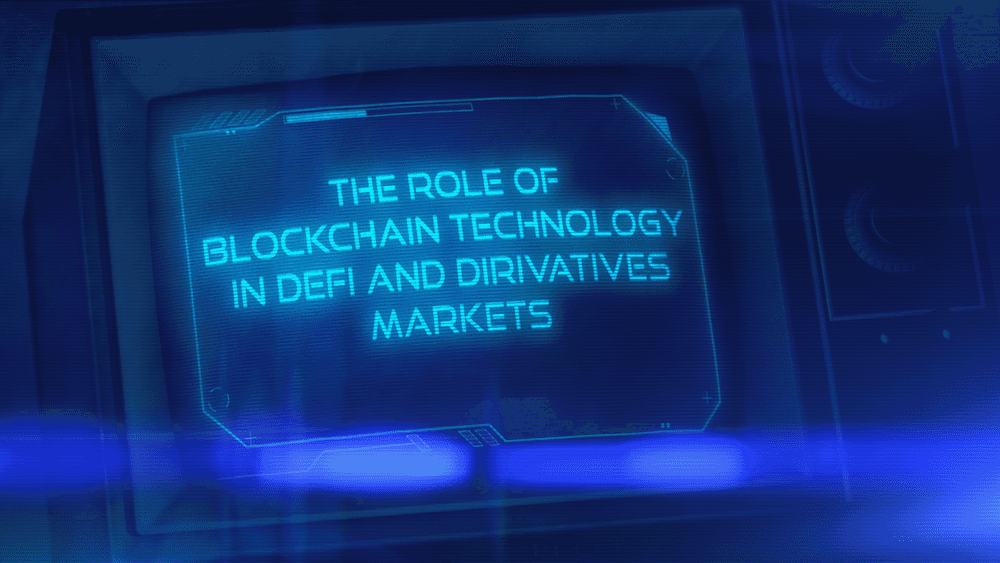The Role of Blockchain Technology in DeFi and Derivatives Markets
May 24, 2023 | Cryptex Contributors
The rise of decentralized finance (DeFi) and derivatives markets has been accompanied by the increasing adoption of blockchain technology. Blockchain technology is crucial for creating and operating these markets. In this article, we will explore the role of blockchain technology in DeFi and derivatives markets, and provide examples of how it is being used.
What is Blockchain Technology?
Blockchain technology is a distributed ledger that enables secure and transparent recording of transactions. It is a decentralized system that resists tampering and censorship, as it is not controlled by any single entity.
In the financial context, blockchain technology can create decentralized systems that facilitate peer-to-peer transactions without intermediaries such as banks or brokers. This is the foundation of DeFi.
Role of Blockchain Technology in DeFi
DeFi platforms utilize blockchain technology to create decentralized systems that enable the borrowing, lending, and trading of cryptocurrencies without intermediaries. These platforms rely on smart contracts, which are self-executing contracts with the terms of the agreement between buyer and seller directly written into lines of code.
Smart contracts on the blockchain enable the creation of decentralized applications (DApps) that can facilitate a wide range of financial activities. Some examples of DeFi platforms that use blockchain technology include:
Compound
Compound is a decentralized lending platform that enables users to earn interest on their cryptocurrency holdings by lending them to borrowers. The platform utilizes smart contracts on the Ethereum blockchain to facilitate borrowing and lending without intermediaries.
Aave
Aave is a decentralized borrowing and lending platform that enables users to earn interest on their cryptocurrency holdings by lending them to borrowers. The platform uses smart contracts on the Ethereum blockchain to facilitate borrowing and lending without intermediaries.
Uniswap
Uniswap is a decentralized exchange that enables users to trade Ethereum-based tokens directly from their wallets. The platform uses an automated market maker (AMM) model to facilitate trades, which relies on liquidity providers to add funds to the pool. Liquidity providers on Uniswap earn a portion of the 0.30% trading fee generated by each trade.
Role of Blockchain Technology in Derivatives Markets
Derivatives markets are financial markets that allow investors to speculate on the future price movements of an underlying asset without owning the asset itself. These markets can be complex and require significant infrastructure to operate effectively.
Blockchain technology can be used to create decentralized derivatives markets that are transparent, efficient, and secure. Smart contracts on the blockchain can be used to create complex financial instruments such as futures contracts and options contracts. Some examples of derivatives markets that use blockchain technology include:
Synthetix
Synthetix is a decentralized derivatives platform that allows users to trade synthetic assets that track the price of real-world assets such as stocks, commodities, and currencies. The platform uses smart contracts on the Ethereum blockchain to facilitate the creation and trading of synthetic assets.
GMX
GMX is a decentralized spot and perpetual exchange that supports low swap fees and zero price impact trades. Trading is supported by a unique multi-asset pool that earns liquidity providers fees from market making, swap fees, and leverage trading. Dynamic pricing is supported by Chainlink Oracles.
Cryptex Finance
Cryptex Finance is a multi-network DeFi protocol. The protocol uses Ethereum smart contracts, Perennial derivatives vaults, and Chainlink data oracles to provide secure and decentralized trading for users.
Opyn
Opyn is a decentralized options trading platform that allows users to buy and sell options contracts on Ethereum-based tokens. The platform uses smart contracts on the Ethereum blockchain to facilitate the creation and trading of options contracts.
Conclusion
Blockchain technology is playing an increasingly important role in the world of DeFi and derivatives markets. By enabling the creation of decentralized systems that are transparent, efficient, and secure, blockchain technology is transforming the financial industry. As DeFi and derivatives markets continue to grow, it is likely that blockchain technology will play an even greater role in shaping the future of finance.
